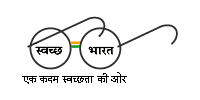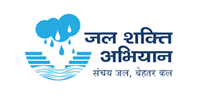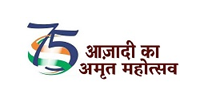The present Scheme requires major changes to adjust to the changed
scenario. Some of the reasons for restructuring the present scheme and
launching it in the form of a Mission are as under:-
The existing Scheme has 9 components. It is necessary to make
modifications in some of the existing components of the Scheme on
account of the dynamism in the seed sector and the experience gained
in the implementation of the Scheme. The components such as ‘Seed
Village Programme’ and ‘Assistance for Boosting Seed Production in
Private Sector’ and the parameters for seed storage, processing and
laboratories etc need major modifications. The pattern of assistance
in some other components also requires revision.
The existing Scheme is being implemented w.e.f. 2005-2006. Seed
production technologies are changing and new technologies like
transgenics, tissue culture, soil-less agriculture etc. have emerged.
There is greater emphasis on seed quality assurance particularly to
safeguard the interest of the farmers. There has also been a
significant change in the country’s socio-economic conditions. The
economy has been substantially liberalized and the private sector is
playing an increasing role in various spheres including agriculture.
Sub-Mission on Seed and Planting Material (SMSP)
The 11th Plan on-going Central Sector Plan Schemes (i) Development and
Strengthening of Infrastructure Facilities for Production and
Distribution of Quality Seeds (DSIS) and (ii) Implementation of PVP
Legislation (PPVFRA) are to be merged with the Sub-Mission on Seed and
Planting Material with 26 new components on seed sector and another 6
proposed for Protection of Plant Varieties and Farmers’ Rights
Authority (PP & FRA), to be implemented during 12th Plan. These 26
new components can be broadly categorized into 10 categories viz. 1
component of Seed Planning, 7 components of Seed Production, 4
components of Varietal Replacement, 2 components for Specific
interventions for public seed producing organization, 2 separate and 1
new component in Quality Control, 1 component of Contingency Planning,
PPP in seed sector, provision for meeting cost implementing
international treaties, National Campaign, Capacity Building,
Innovative measures and 3 components of Mission Management. During the
XI Plan period, Scheme relating to Implementation of Protection of
Plant Varieties and Farmers’ Rights Act (PPVFRA) had twelve components,
which are now being extended to 18.
Interventions proposed under sub mission on seed and planting
material.
The interventions are proposed under the following major sectors
covering the entire seed chain from nucleus seed to supply to farmer
for sowing and also the major stakeholders in the seed chain, both
public and private
- Seed Planning : containing one new component
-
Seed production :with eight components of which 7 are new and
one component of Seed Village is proposed to be continued with some
modifications
-
Varietal Replacement : containing four new components of
which one component pertaining to minikits and FLD’s exists under
some of the crop production programmes of DAC
-
Seed Infrastructure :where two existing components of seed
storage and seed processing are re-structured to provide for modern
infrastructure
-
Quality Control :The components under the existing Scheme and
support to NSRTC Varanasi are proposed to continue with amendments.
Two new components of National GOT facility and Seed treatment are
included.
-
Specific interventions for public Seed Producing Organisations : Two new components for computerization and Working Capital support
are proposed.
-
Contingency Planning :It brings in an ambitious element of
National Seed Reserve (NSR) and proposes to continue the existing
component of Seed Bank till such time as the Reserve is
operationalised.
-
Private Sector :in which two components are proposed of which
one concerning Public Private Partnerships is new and the existing
component of assistance is modified.
-
International Co-Operation :where one is a continuing
component and the other pertaining to Seed Export Promotion is new.
-
Other Measures :that contain existing components of Transport
Subsidy and Bio-Technology in agriculture which are to be continued;
an enlarged component of training and introduces 3 new components of
National Campaign for Seed Promotion, surveys and local initiatives.
-
Mission management:containing provisions for operationalising
the Mission.
In all 35 components are proposed of which 4 are continuing; 5 are
continuing with modifications and twenty six are new.
The Planning Commission had earlier given in-principle approval to the
scheme in July, 2010. EFC approved the Mission on 01.04.2011. The note
on the National Mission on Seeds was sent to Planning Commission for
Full Planning Commission approval. Planning Commission has now
suggested a new National Mission for Agricultural Extension and
Technology comprising inter alia a Sub- Scheme/Mission on Seed and
planting Material. Revised DPR and EFC Memo for the sub scheme/Mission
on Seed has been prepared and forwarded to JS (Extension) for
appropriate action. Revised DPR with 10% State’s share was forwarded
to Extension Division on 5.6.2012.
Planning Commission has reduced/revised the allocation for the XII
Five Year Plan for the Department. Accordingly the revised allocation
for both the schemes of the Division for XII Five Year Plan is Rs.
1986 crores for ‘Development and Strengthening of Infrastructure
Facilities for Production and Distribution of Quality Seeds’ and
Rs.102 crore for scheme for Implementation of PVP Legislation ( Rs.
2088 crores). Accordingly combined EFC with revised allocation is
prepared and being circulated by extension division.




















